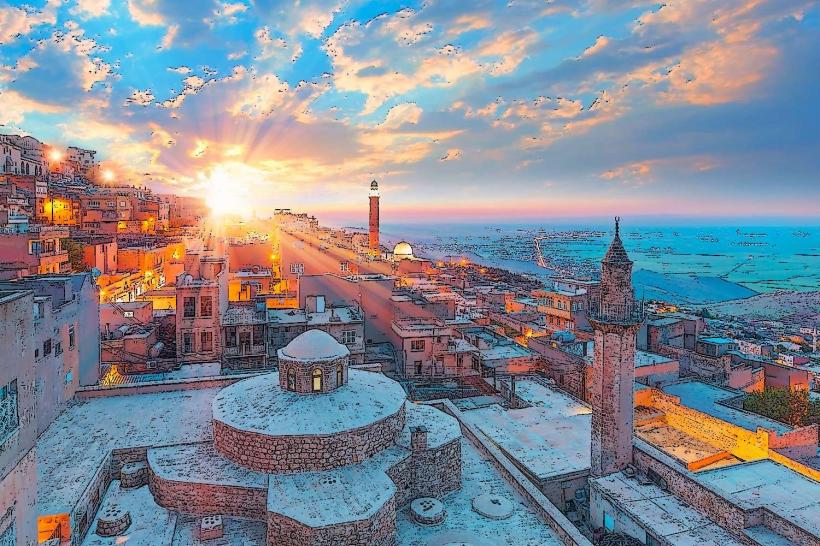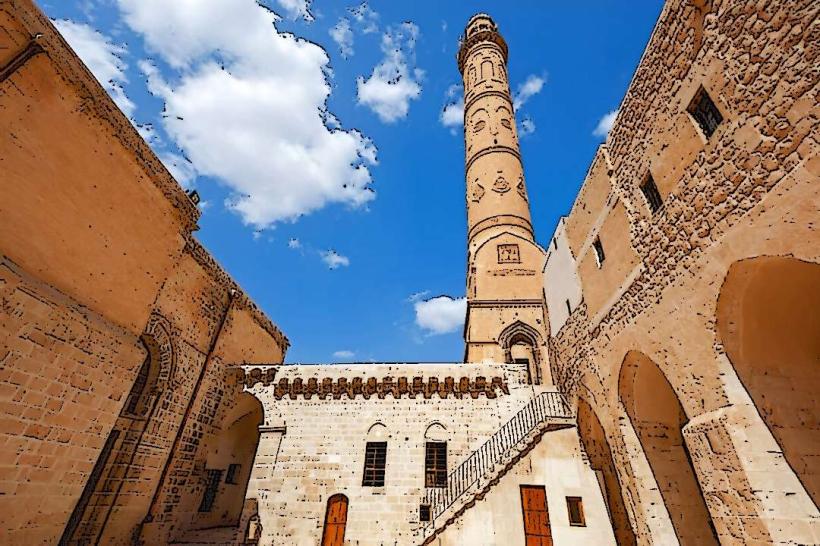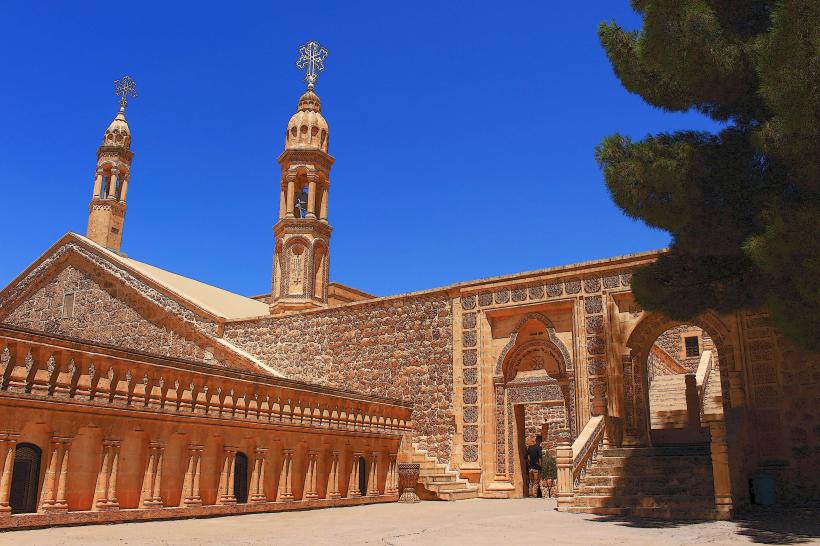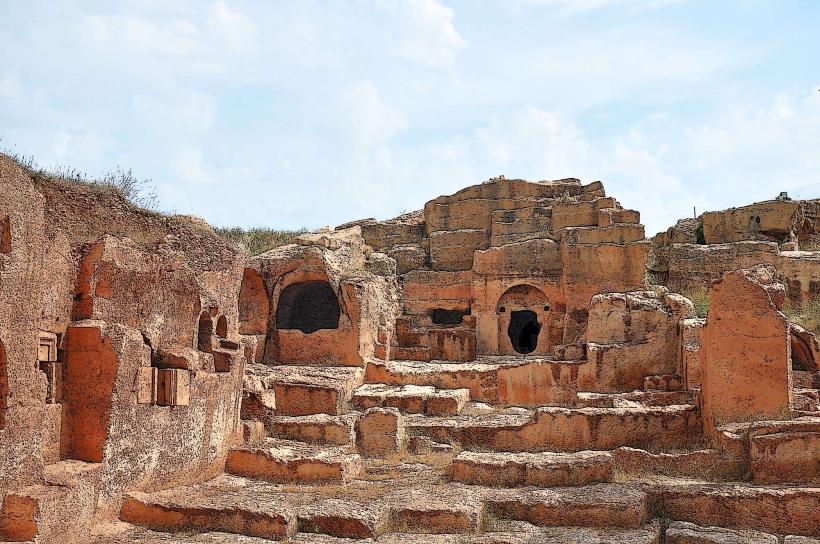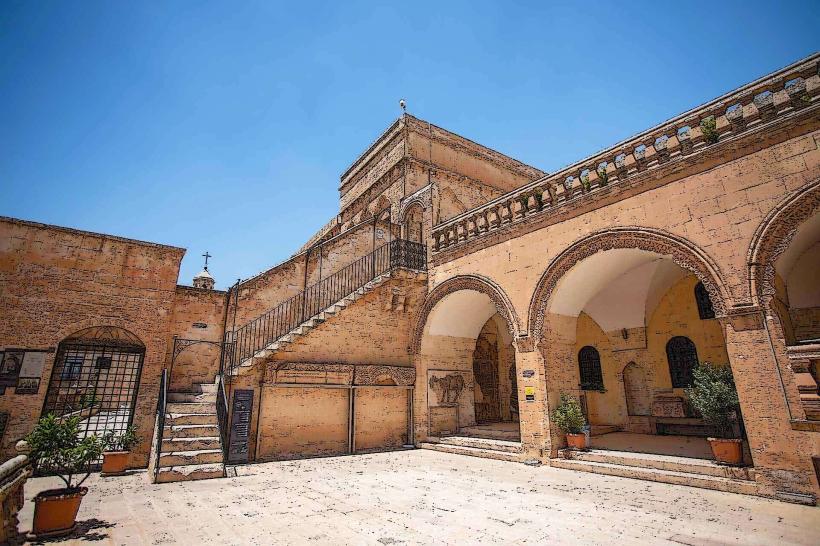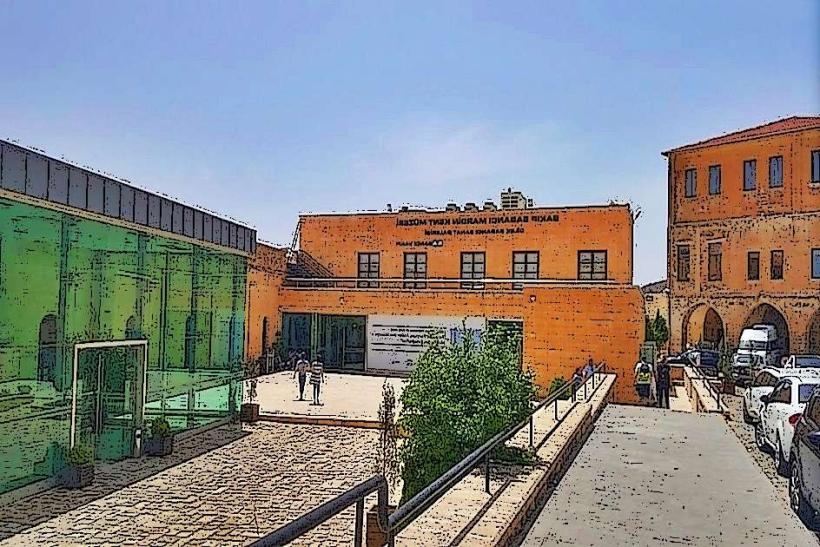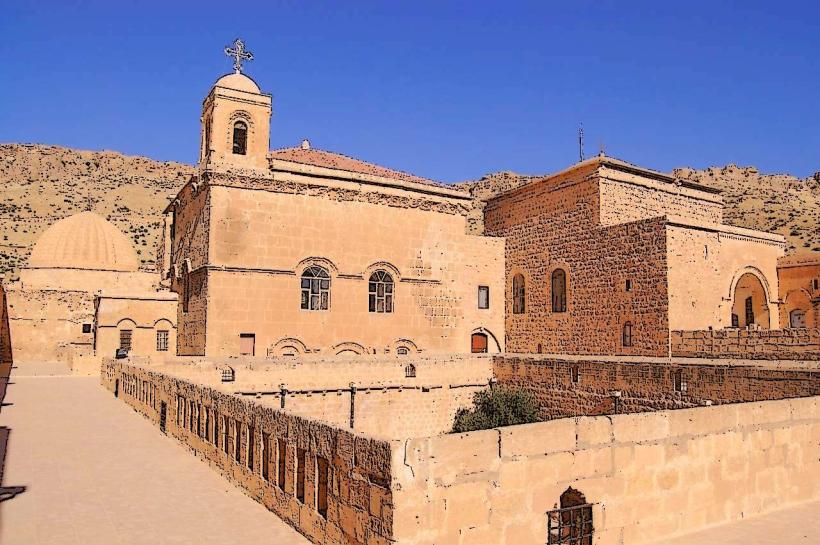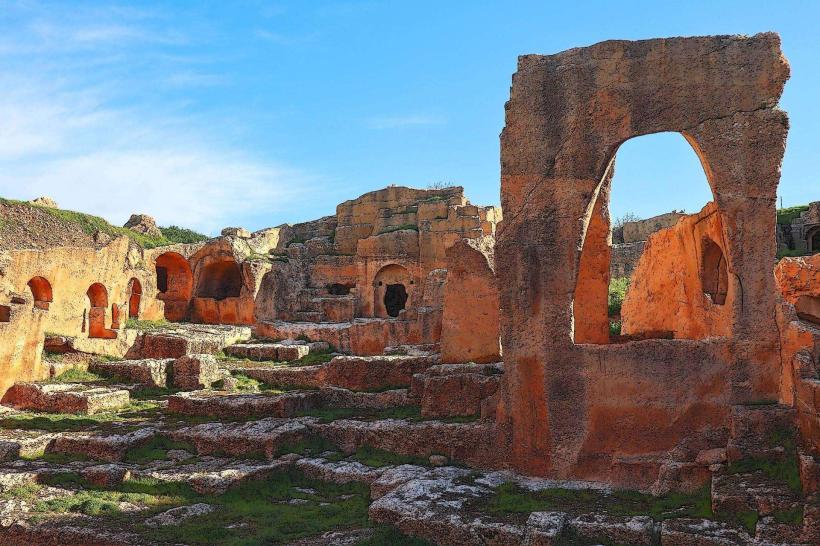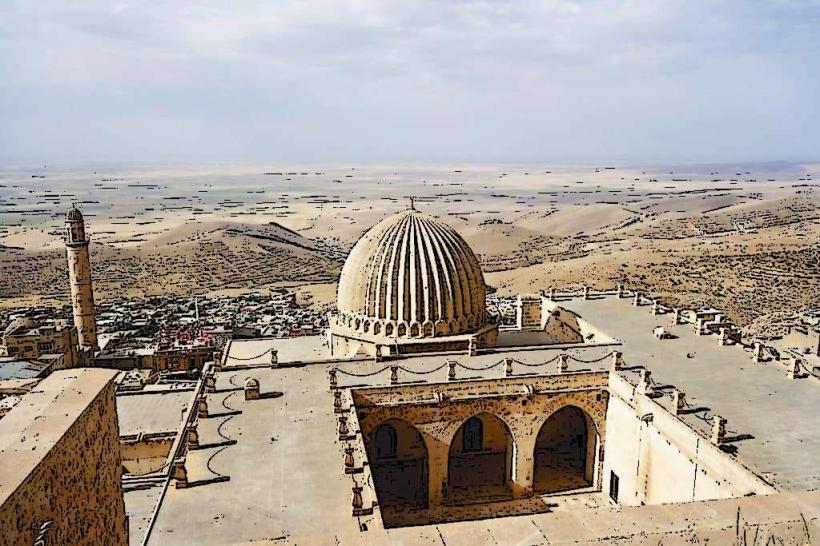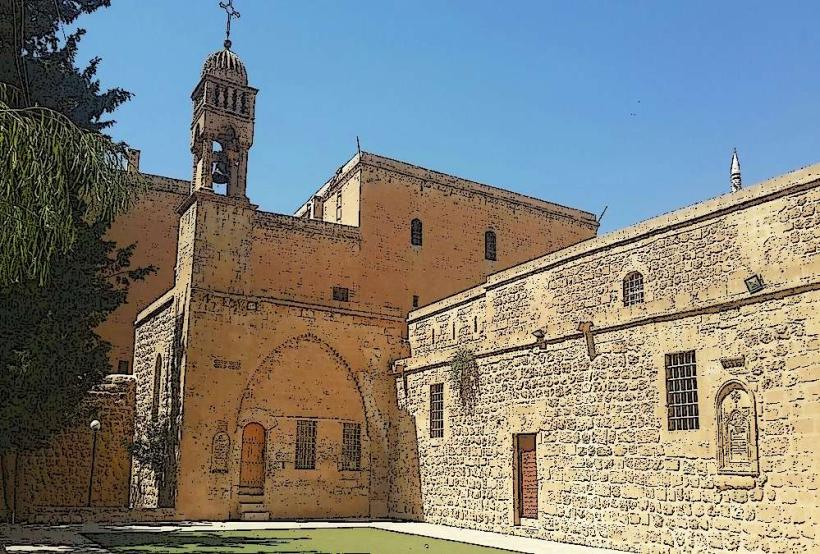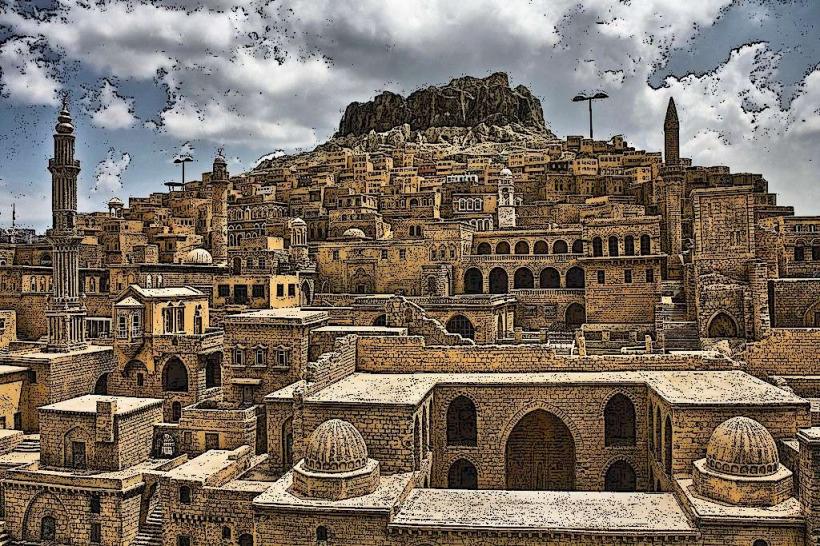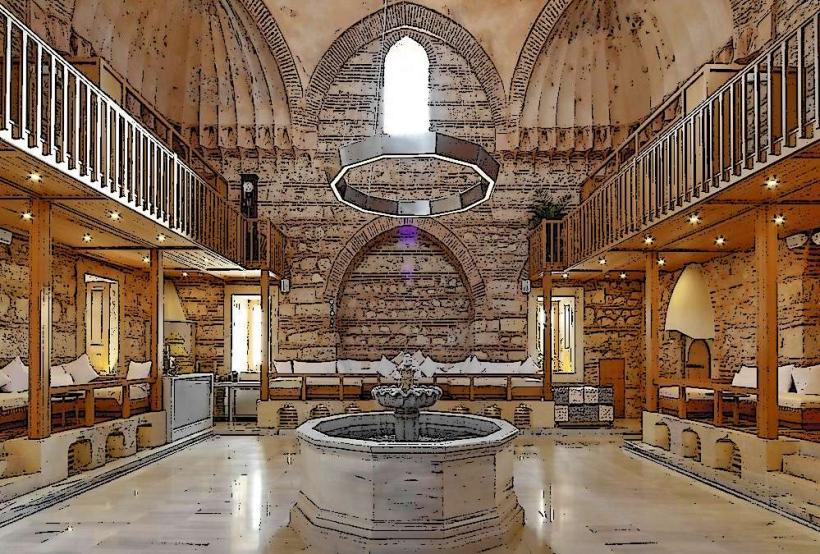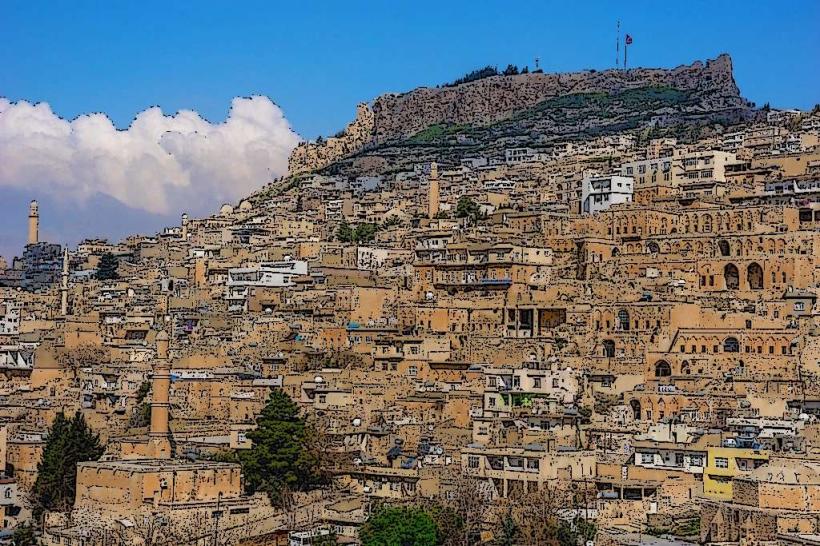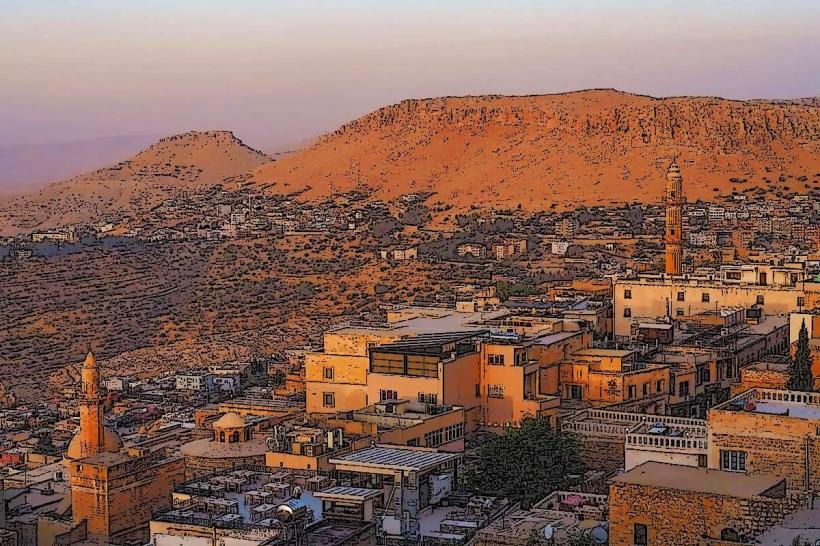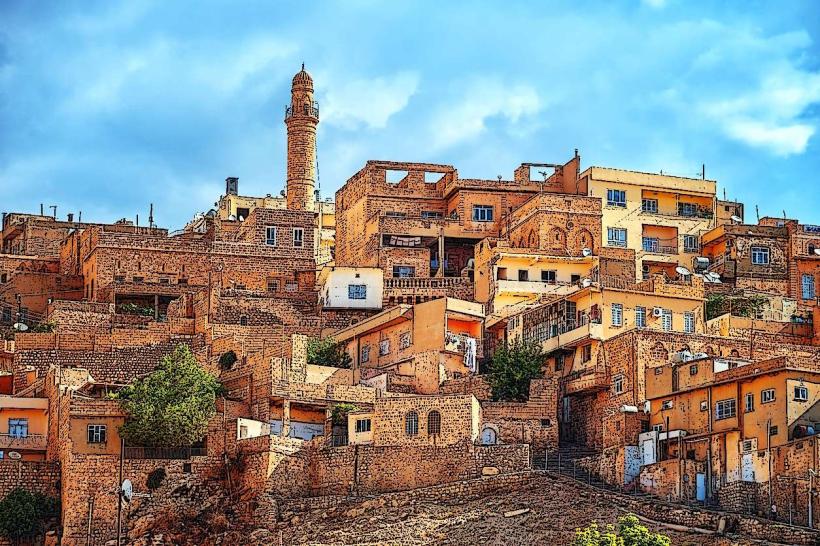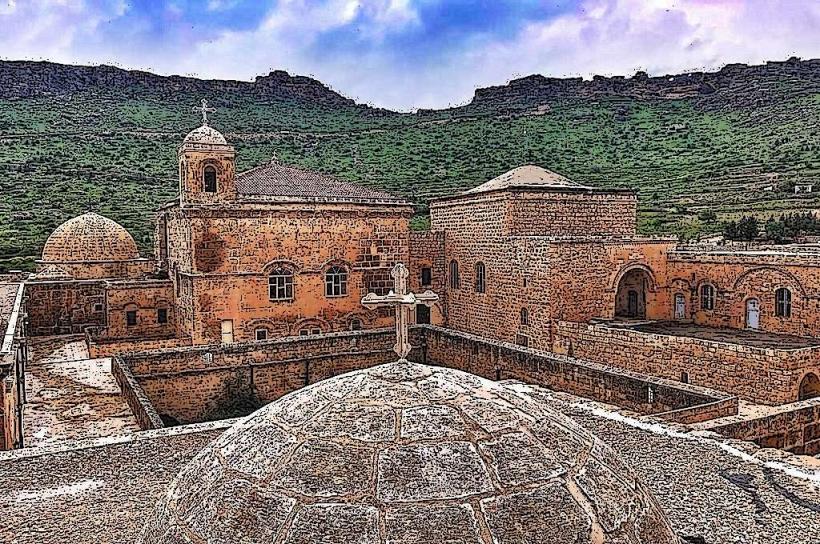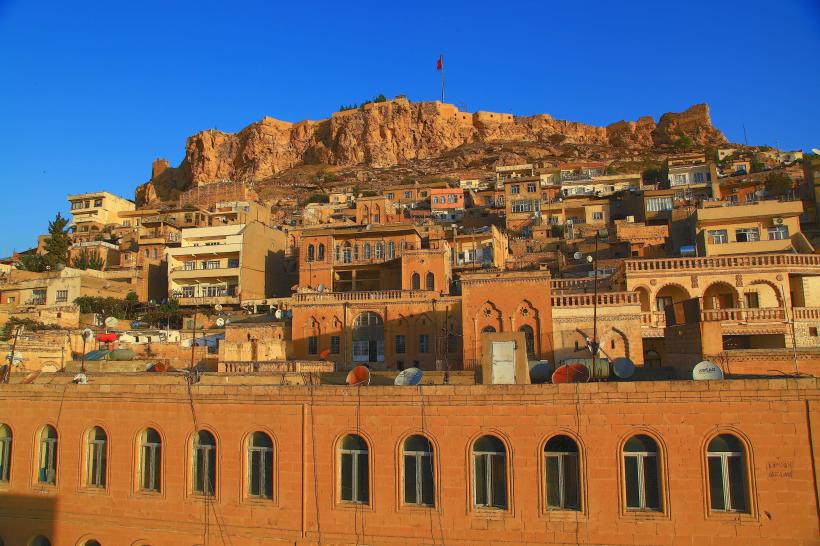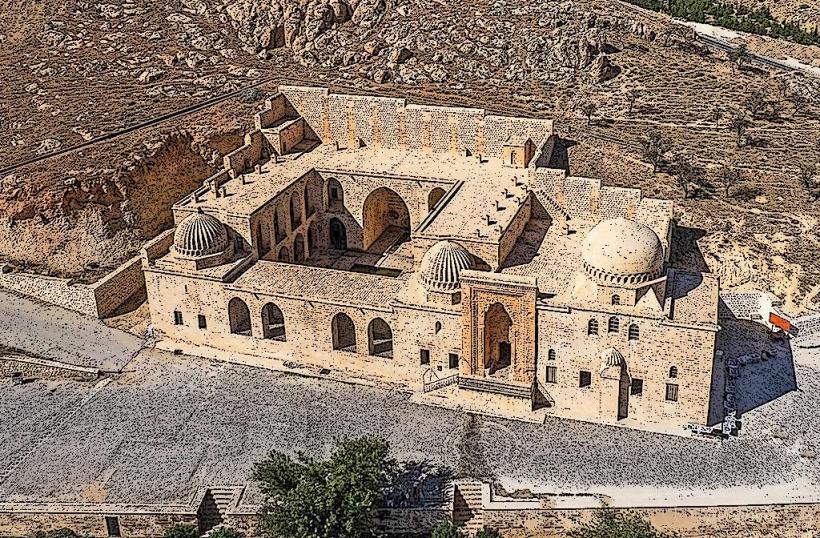Information
Landmark: Zinciriye MedreseCity: Mardin
Country: Turkey
Continent: Asia
Zinciriye Medrese, Mardin, Turkey, Asia
The Zinciriye Medrese is a historical Islamic school located in Mardin, Turkey. It is situated on a hill overlooking the Mesopotamian plains.
Visual Characteristics
Constructed primarily from local limestone, the medrese exhibits a light ochre color. The structure features a central courtyard with a fountain, surrounded by student cells and lecture halls. Its minaret, a prominent feature, is octagonal and slender. The architectural style is characteristic of the Artuqid period, with pointed arches and intricate stone carvings, particularly around the main portal.
Location & Access Logistics
The Zinciriye Medrese is located in the old city of Mardin, approximately 1 kilometer from the city center. Access is via the narrow, pedestrianized streets of Mardin's historic district. Limited vehicle access is available to the immediate vicinity, with public parking available at the city's main entrance points, requiring a walk of approximately 500 meters. No direct public transport routes serve the medrese itself; visitors typically walk from the city center or parking areas.
Historical & Ecological Origin
Construction of the Zinciriye Medrese began in 1197 and was completed in 1214 by the Artuqid ruler of Mardin, Melik Necmeddin Alpi. It served as a center for Islamic education and jurisprudence. The site was chosen for its strategic elevation, offering commanding views of the surrounding region.
Key Highlights & Activities
Visitors can explore the student cells, the main prayer hall, and the courtyard. The elevated position provides panoramic views of the Mesopotamian plain. Photography of the architectural details and the landscape is a primary activity. Access to the minaret is generally restricted.
Infrastructure & Amenities
Restrooms are available on-site. Limited shaded areas are present within the courtyard. Cell phone signal (4G/5G) is generally available. No food vendors are located within the medrese; dining options are available in the surrounding city streets.
Best Time to Visit
For photography, the late afternoon offers favorable lighting conditions as the sun illuminates the limestone facade. The months of April, May, September, and October provide the most comfortable temperatures for exploration. No tide-specific considerations apply.
Facts & Legends
A local legend states that the medrese was named "Zinciriye" (meaning "chained") because its founder, Melik Necmeddin Alpi, was known for his strict adherence to Islamic law, metaphorically "chaining" himself to its principles. A verified historical detail is that the medrese was later used as a prison during certain periods.
Nearby Landmarks
- Kasımiye Medrese (0.2km West)
- Mardin Museum (0.4km North)
- Ulu Cami (Great Mosque) (0.3km Northwest)
- Deyrulzafaran Monastery (4.5km Southwest)

